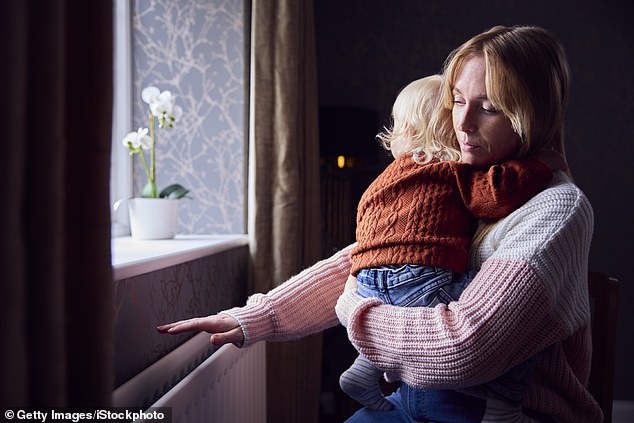British women would like one more child but cost of having them, affordability of care and anxiety about overpopulation put them off, study suggests
- Fertility data showed that the majority of young women surveyed did not have children
British women are having one less child than they would like, a study has found.
The average number of children the women surveyed between the ages of 18 and 35 wanted was 2.35.
But fertility data from the Office for National Statistics showed that mothers in this age group had an average of 1.55 babies born in 2021.
The survey of 1,502 women commissioned by Tory MP Miriam Cates of the New Social Covenant Unit, carried out by Whitestone Insight, found that economic factors, including the cost of childcare, are causing concerns for expectant mothers.
The findings, which will be presented today at a Center for Social Justice event, also show that the majority of young women surveyed do not have children.
The poll commissioned by Tory MP Miriam Cates for the New Social Covenant Unit found that economic factors, including the cost of childcare, are causing concerns for expectant mothers.
About 88 percent of women between the ages of 18 and 24 and 49 percent between the ages of 25 and 35 were found to be childless.
But despite this, only a small proportion of both age groups, 13 percent and 14 percent respectively, said they would ideally not have babies.
The average number of children desired by respondents in the 18 to 24 year category was 2.25, while for the 25 to 35 year category it was 2.41.
The research also found that the main concern of women considering starting a family is the impact on their lifestyle; 62 percent mention this as a concern.
About 59 percent expressed concerns about overcrowding, while financial concerns such as childcare costs and housing affordability were also seen as important considerations before children were born.
Ms Cates warned that Britain is facing a “birth rate crisis” that will have “serious economic and social consequences if left unaddressed”.
She said: ‘Our polling shows that the lack of babies is not due to a lack of demand, with the vast majority of young women saying they want children, and on average expressing a desire to have two or three children.
“If we can find ways to remove the barriers women face in determining the family size of their choice, we can reverse the decline in the birth rate.”

Money concerns such as childcare costs and housing affordability were also seen as important considerations before children were born (stock image)
Andy Cook, CEO of the Center for Social Justice, said: ‘Baby bust means British bust – looking into the future this will create economic and social problems that no government or public services will have the resources to solve. ‘
The New Social Covenant Unit was founded by Ms Cates and fellow Tory MP Danny Kruger as an initiative aimed at promoting government policies that strengthen families and communities.
Separate research also shows that around 250,000 mothers have quit their jobs due to the pressure on childcare.
The report from Totaljobs and the gender equality charity Fawcett Society suggested that most women have faced barriers in trying to progress their careers while managing the care of their children, and that two in five have been promoted or turned down a job because of concerns about their childcare. or babysitting arrangements.
Jemima Olchawski, chief executive of the Fawcett Society, said: ‘The few years a mother spends caring for young children is a small part of her working life.
‘Too often, outdated prejudices and assumptions leave women exposed to unnecessary and harmful attitudes that hold them back.’
